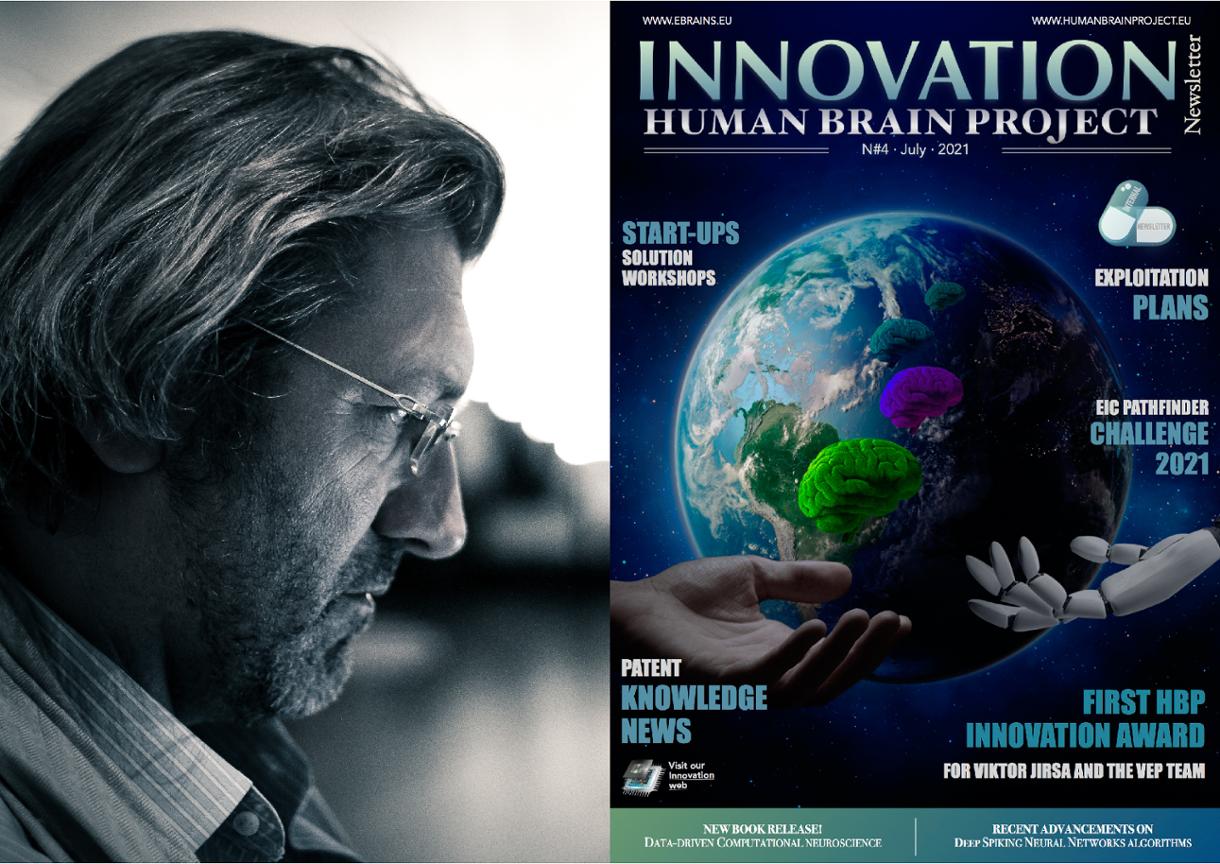In January 2021, the Human Brain Project has launched the HBP Innovation Awards to recognize project researchers in their role of “innovators”. The awards will give internal and external visibility to their efforts towards the exploitation of their research results.
The first Innovation Award – for the first semester 2021 – was granted to Viktor Jirsa and the Virtual Epileptic Patient (VEP) team.
Says Viktor Jirsa:
The advantage of VEP is that it provides a balanced judgement of the contribution of the various factors influencing seizures, including regional epileptogenicity, the patient’s brain connectivity, but also electrode placements.
Furthermore, it can simulate brain activity, test clinical interventions, and reveal brain activity, which is not accessible otherwise. For instance, sometimes a clinician would like to have an extra electrode in the patient’s brain, which could not be implanted originally, and VEP can simulate the electrode and generate the missing data.
A first version of the VEP technology is currently tested by medical users within the clinical trial EPINOV. The trial study is conducted in 13 hospital centers in France and has started in June 2019.
The study will last four years and aims at guiding therapeutic strategies to improve surgical prognosis. It will include about 400 prospective patients (adults and children over 12) who have been diagnosed with drug-resistant epilepsy and identified as potential candidates for resective epilepsy surgery.
The EPINOV Trial is the largest randomized multi-site trial ever conducted in epilepsy surgery and has been funded by the French scientific excellence program “Investissements d’Avenir” (Investment in the Future) entitled «Recherche Hospitalo-Universitaire en santé» (RHU) operated by the National Research Agency (ANR).
Read the full interview with Viktor Jirsa in this PDF magazine
